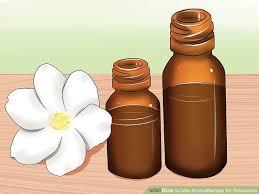Use Aromatherapy
Whether they’re in oil form, incense, or a candle, scents like lavender, chamomile, and sandalwood can be very soothing.
Aromatherapy is thought to help activate certain receptors in your brain, potentially easing anxiety.
274
908 reads
CURATED FROM
IDEAS CURATED BY
The idea is part of this collection:
Learn more about health with this collection
How to set achievable goals
How to manage time for personal and professional life
How to avoid distractions
Related collections
Similar ideas to Use Aromatherapy
Tips for Better Sleep
Here are two simple tips to help you sleep better tonight:
- Turn off all screens at least one hour before hitting the hay to send the signal to your brain that it’s bedtime and ease your mind into sleepy relaxation.
- Be intentional with your soothing bedtime rituals. Instead o...
The Optimal Level of Stress
Whether it is the stress that is taken by schoolchildren or workplace challenges, we have to find an optimal level where there is just the right amount of pressure. There is a balance that has to be achieved for stress levels (which comes from external factors) and anxiet...
Read & Learn
20x Faster
without
deepstash
with
deepstash
with
deepstash
Personalized microlearning
—
100+ Learning Journeys
—
Access to 200,000+ ideas
—
Access to the mobile app
—
Unlimited idea saving
—
—
Unlimited history
—
—
Unlimited listening to ideas
—
—
Downloading & offline access
—
—
Supercharge your mind with one idea per day
Enter your email and spend 1 minute every day to learn something new.
I agree to receive email updates


